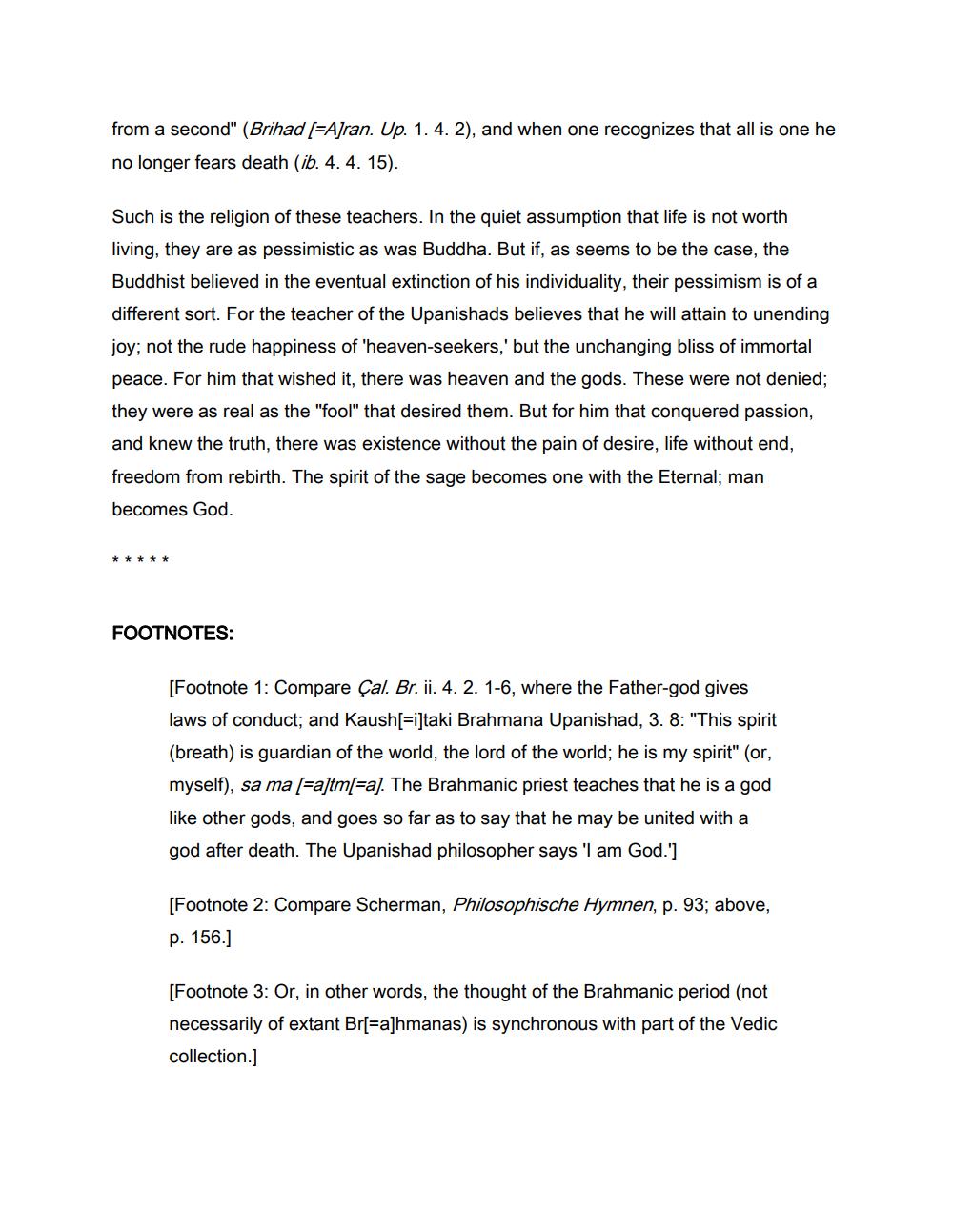________________
from a second" (Brihad (=A]ran. Up. 1. 4. 2), and when one recognizes that all is one he no longer fears death (ib. 4.4. 15).
Such is the religion of these teachers. In the quiet assumption that life is not worth living, they are as pessimistic as was Buddha. But if, as seems to be the case, the Buddhist believed in the eventual extinction of his individuality, their pessimism is of a different sort. For the teacher of the Upanishads believes that he will attain to unending joy, not the rude happiness of 'heaven-seekers,' but the unchanging bliss of immortal peace. For him that wished it, there was heaven and the gods. These were not denied; they were as real as the "fool" that desired them. But for him that conquered passion, and knew the truth, there was existence without the pain of desire, life without end, freedom from rebirth. The spirit of the sage becomes one with the Eternal; man becomes God.
*
*
*
*
*
FOOTNOTES:
[Footnote 1: Compare Çal. Br. ii. 4. 2. 1-6, where the Father-god gives laws of conduct; and Kaush(=i]taki Brahmana Upanishad, 3. 8: "This spirit (breath) is guardian of the world, the lord of the world; he is my spirit" (or, myself), sa ma [=a]tm[=a). The Brahmanic priest teaches that he is a god like other gods, and goes so far as to say that he may be united with a god after death. The Upanishad philosopher says 'I am God.']
[Footnote 2: Compare Scherman, Philosophische Hymnen, p. 93, above, p. 156.]
[Footnote 3: Or, in other words, the thought of the Brahmanic period (not necessarily of extant Br[=a]hmanas) is synchronous with part of the Vedic collection.]




